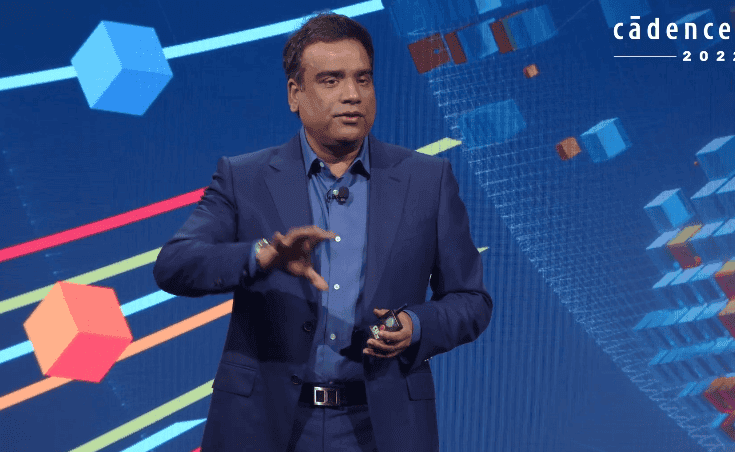Trump Administration Targets Chip Design Software Exports to China, Impacting Cadence and Synopsys
2 Sources
2 Sources
[1]
Why Cadence Design Systems Plunged Late in the Day Today | The Motley Fool
Cadence is just one of a handful of companies that makes the software semiconductor designers use to design chips. With the increasing variety of chips and number of chipmakers proliferating over the past decade, it has been an excellent business. However, a Financial Times article published late Wednesday said that the Trump administration may cut off these companies' Chinese revenues. Late on Wednesday, the Financial Times said the Trump administration's Commerce Department has instructed Cadence, along with its oligopoly competitors Synopsis and Siemens EDA, to stop selling their software to China. The past couple of presidential administrations have been grappling with how to slow China's advances in artificial intelligence (AI) technology, without hurting U.S.-based chipmakers that also sell into China's massive market. Past administrations have already cut off the most advanced semiconductor manufacturing equipment to China, but if the FT article is correct, it appears the Trump administration may be attempting to cut the leading chip design software technologies off as well. In its most recent annual report, Cadence stated that China made up about 12% of its revenue, down from 17% in the prior year. So, it's perhaps no wonder Cadence's stock is down by roughly the same percentage today. It's hard to draw conclusions from this late-day FT piece, but it appears that the market may already be pricing in a worst-case scenario already, given the sudden double-digit decline. That said, Cadence was an expensive stock to begin with, as shares were trading at 82 times trailing and 47 times forward earnings coming into the day. As is the case with most leading chipmakers and semiconductor-oriented names, these are generally high-quality businesses with strong growth outlooks on the back of the AI boom; however, that means they are also vulnerable to geopolitics. It makes for a volatile brew. That being said, Foolish investors shouldn't shy away from chip stocks, as semis have been the best-performing sector over the past decade.
[2]
Chip software in Washington's sights
Shares in software developers for chip design fell sharply yesterday. The Trump administration wants to restrict exports to China. Cadence Design and Synopsis are directly affected. The shock was triggered by a new round of regulations: the Trump administration has asked several chip design software (EDA) suppliers to suspend exports to China. The escalation is quite sudden, as Sino-US negotiations on tariffs seemed to be reaching a fairly positive conclusion. Yet Donald Trump seems to blame China for the slow progress of trade negotiations. Chinese President Xi Jinping is playing for time and stepping up talks with other countries to reduce Beijing's dependence on the US for exports. It would therefore come as no surprise if Donald Trump announced a drastic measure, such as the 50% tariffs imposed on the EU - and then lifted it the next day - in an attempt to push things forward as he sees fit. The Bureau of Industry and Security (BIS), a strategic body within the Department of Commerce, has reportedly sent letters to several companies - including Synopsys, Cadence, and Siemens - informing them of a partial freeze on deliveries to Chinese customers, according to sources cited by the Wall Street Journal. Synopsys derives 16% of its revenue from China, Cadence 12%. This is a relative dependency, but Synopsys, Cadence Design, and Siemens AG together account for 80% of the Chinese design software market, with these two US companies alone accounting for 70%. This software is known as EDA (Electronic Design Automation). Amongst other things, it is used to create the most advanced architectures, such as processors for Apple and Nvidia, as well as chips for aerospace and 6G. Synopsys CEO Sassine Ghazi sought to reassure the public: "We have not received any formal notification from the BIS." Cadence, for its part, remains silent. The group recently raised its 2025 revenue forecast (to between $5.15bn and $5.23bn), supported by demand for AI, high-performance computing, and the growing adoption of its hardware systems. On the New York Stock Exchange yesterday, Cadence Design and Synopsys lost 10.7% and 9.6% of their market capitalization, respectively.
Share
Share
Copy Link
The Trump administration has reportedly instructed chip design software companies to halt exports to China, causing significant stock drops for industry leaders Cadence Design Systems and Synopsys.
Trump Administration Targets Chip Design Software Exports
In a move that has sent shockwaves through the semiconductor industry, the Trump administration has reportedly instructed several chip design software companies to suspend exports to China. This decision, aimed at slowing China's advances in artificial intelligence (AI) technology, has significantly impacted industry leaders Cadence Design Systems and Synopsys
1
.
Source: Market Screener
Impact on Key Players
Cadence Design Systems, Synopsys, and Siemens EDA, which together control about 80% of the Chinese design software market, are directly affected by this decision. Cadence and Synopsys alone account for 70% of this market share
2
.The news led to a sharp decline in the stock prices of these companies:
- Cadence Design Systems saw its stock plunge by approximately 10.7%
- Synopsys experienced a 9.6% drop in market capitalization [2](https://www.marketscreener.com/quote/stock/SYNOPSYS-INC-4908/news/Chip-software-in-Washington-s-sights-50102585/]
Revenue Implications
The potential loss of the Chinese market could have significant revenue implications for these companies:
- Cadence reported that China accounted for about 12% of its revenue in its most recent annual report, down from 17% in the previous year
1
- Synopsys derives approximately 16% of its revenue from China [2](https://www.marketscreener.com/quote/stock/SYNOPSYS-INC-4908/news/Chip-software-in-Washington-s-sights-50102585/]
Strategic Implications
This move by the Trump administration appears to be part of a broader strategy to maintain U.S. technological supremacy:
- It follows previous restrictions on the export of advanced semiconductor manufacturing equipment to China
- The decision targets Electronic Design Automation (EDA) software, crucial for creating advanced chip architectures used in AI, high-performance computing, and emerging technologies like 6G [2](https://www.marketscreener.com/quote/stock/SYNOPSYS-INC-4908/news/Chip-software-in-Washington-s-sights-50102585/]

Source: Motley Fool
Related Stories
Industry Reactions
The industry's response to this development has been cautious:
- Synopsys CEO Sassine Ghazi stated, "We have not received any formal notification from the BIS (Bureau of Industry and Security)"
- Cadence has remained silent on the matter, having recently raised its 2025 revenue forecast to between $5.15 billion and $5.23 billion [2](https://www.marketscreener.com/quote/stock/SYNOPSYS-INC-4908/news/Chip-software-in-Washington-s-sights-50102585/]
Broader Context
This development comes amidst ongoing trade tensions between the U.S. and China:
- It follows seemingly positive progress in Sino-US negotiations on tariffs
- The move may be an attempt by the Trump administration to push forward trade negotiations
- It reflects the ongoing challenge of balancing the restriction of China's AI advancements with the interests of U.S.-based chipmakers who also sell to the Chinese market
1
As the situation unfolds, it remains to be seen how this will impact the global semiconductor industry and the ongoing technological race between the United States and China.
References
Summarized by
Navi
[2]
Related Stories
Cadence Design Systems Raises Forecasts Amid Export Curb Lift and Settles Export Violation Case
29 Jul 2025•Business and Economy

Cadence Design Systems Raises Annual Forecasts Amid Strong AI Chip Design Demand
29 Apr 2025•Business and Economy

Trump Administration Bans Export of Chip Design Software to China, Impacting Tech Giants
29 May 2025•Technology

Recent Highlights
1
OpenAI secures $110 billion funding round from Amazon, Nvidia, and SoftBank at $730B valuation
Business and Economy

2
Trump orders federal agencies to ban Anthropic after Pentagon dispute over AI surveillance
Policy and Regulation

3
Google releases Nano Banana 2 AI image model with Pro quality at Flash speed
Technology





